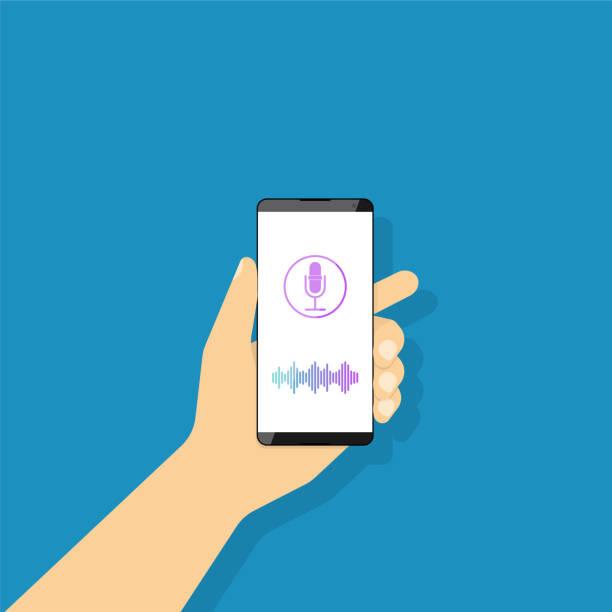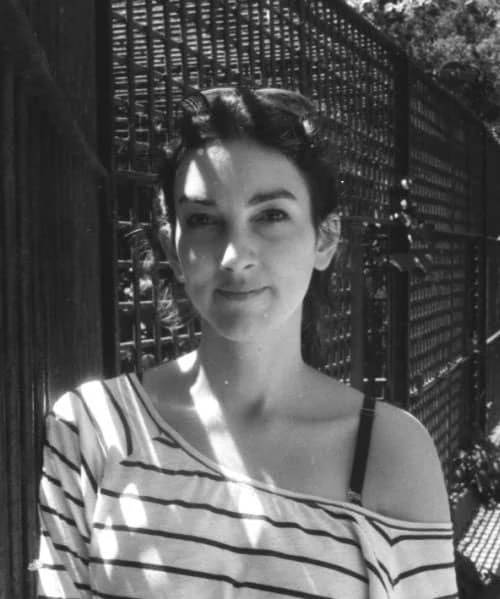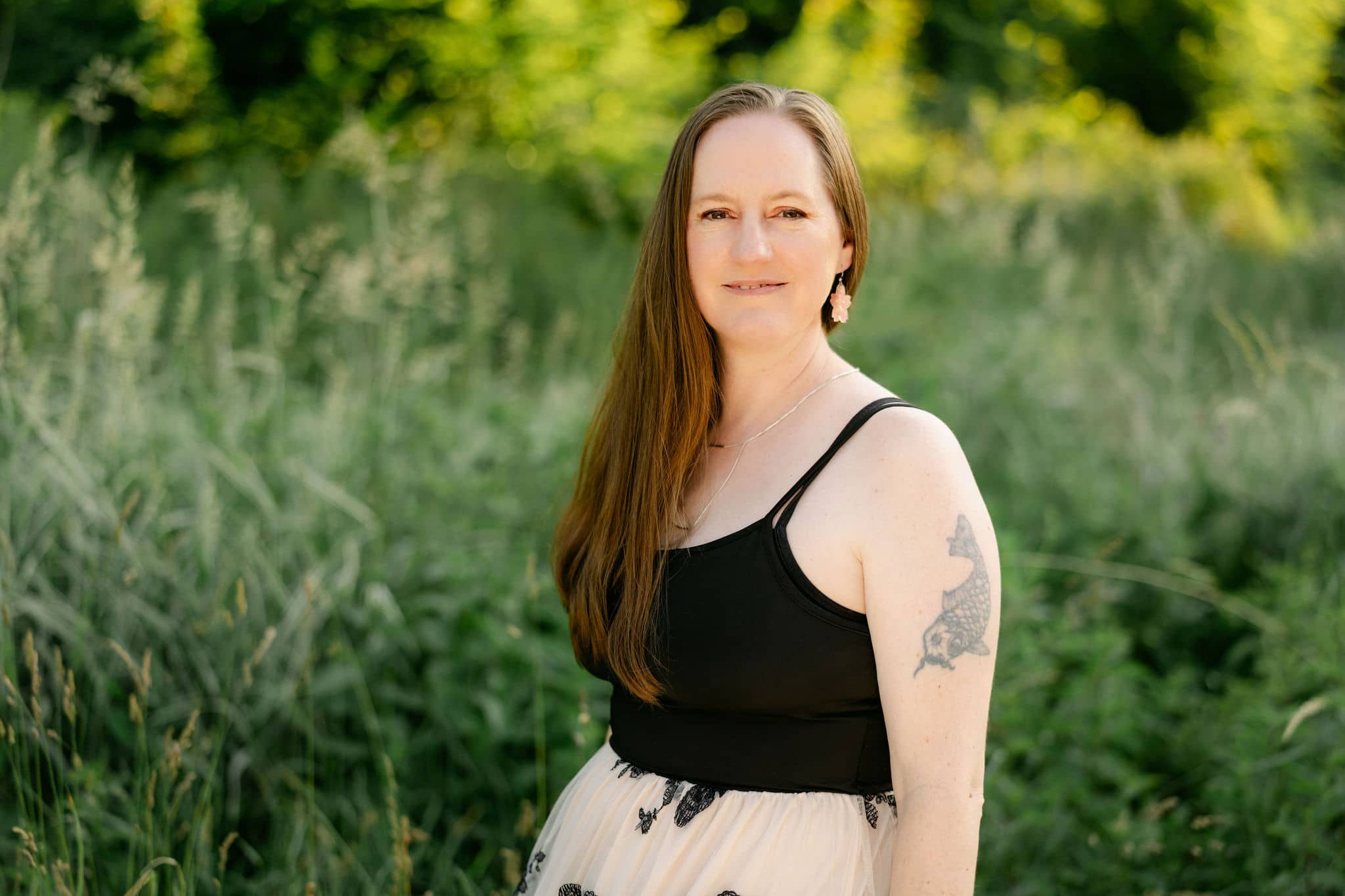
Rebecca E. Treasure:
When I consider the concepts of mental health and writing, my thoughts first go to rejections. After all, that's where the most obvious ups and downs of writing lie. When I submit a story, I'm full of hope and confidence. When the response comes, both are often dashed. But while rejections, and dealing with them, are an important part of writing, there's a lot more to keeping my mind in a healthy state.
An oft-repeated bit of writing advice is “don’t give up” and while, yes, there is an element of truth there, that feels a bit clunky and unrealistic to address the complexity and variety that is mental health. While we’re certainly not going to be able to offer tools for every situation, Marissa and I wanted to share what tools work for us.
Marissa van Uden:
There is this idea floating around that writing is a lonely art, but I think that claim is deceptive. Yes, you are often sitting alone to put words on the page, but aloneness (blessed thing) is not loneliness… writers are in conversation with each other and with writers of the past and future, and there is so much teamwork in the process, from collaborating with critique partners and editors through to sharing writing-craft and publishing tips to mental health tools and community support. To honor this openness, our article is formatted as a conversation with each other and, we hope, with you. Whatever works for you, be kind to that brain of yours, and share some of that kindness with your writer friends and community.
Dealing with Anxiety and Depression
Becky:
I have an anxiety disorder. That means my brain doesn't always process threats and situations in an objectively rational way. Instead, innocuous events can cause me to shut down, and I spend a lot more time worrying about things than is, maybe, strictly necessary. However, because I've also had to learn to live with my brain the way it is, I have a lot of tools in my toolbox for dealing with anxiety.
One of the best things is stepping away from screens. Our whole professional and, often, personal lives in the modern world are tied to screens. I spend most of my day on Discord, chatting with my writing group and the Apex community. But when my anxiety spikes, remembering the middle and far distance is important. I step outside, open a window, read a paper book, color in a coloring book. Often this is enough to clear my thoughts and let me continue writing.
Another great anti-anxiety tool is list writing. If I know what to expect from my day, I can prioritize and as each item is checked off, I know I'm being productive. The anxiety about the to-do list can be overwhelming, so I make sure to edit items I know I won't complete, giving myself the grace to complete them at a future date. I rarely complete everything on my list in a day, but I can feel good knowing I checked off at least a few.
A third thing that helps with anxiety is talking to my peers. Many of us internalized the idea that mental health problems were a weakness, something to be mildly ashamed of. I've found enormous relief in the discovery of people who not only listen to my anxiety worries without judgment but know--or ask!--when I'm looking for sympathy instead of solutions. This isn't something available to everyone, sadly, but if there are people in your life who can listen to you, I encourage you to share your struggles. Vulnerability is, in an odd way, a strength.
Disclaimer: Some days, the best thing for mental health is to not. Some days, I tell everyone I'm not feeling well, and I curl up in bed and wait for sleep. Sometimes, that's the only option.
Marissa:
These are such great strategies. Talking to your peers can work wonders and it sounds like you have the best kind. I also agree that vulnerability is a feature, not a bug. It’s a wellspring for empathy and connection, and the world needs more of that!
In my case, I have a few intertwined mental health disorders, and the way I’ve come to think of them (however they show up) is bad brain weather. These storms pass through and can easily destroy all of my good writing intentions, but I’ve learned ways to help prevent them and ways to minimize the damage when I can’t.
For minor cases, just drinking a lot of water and going outside for a walk can be enough to reset my brain and allow me to write again. The longer the hike and the deeper into nature I go, the better. But sometimes all I can manage is a short walk, and that’s OK because I also make sure to practice intentional self-compassion (intentional, because it doesn’t come naturally to me).
If it’s a very bad brain-weather day, it’s time to put up the storm shutters, hunker down, and ride it out. I clear any urgent tasks, pause work on the rest, and turn off the computer and all notifications (airplane mode). I give myself a pass on writing or doing anything productive, because trying and inevitably failing will only exacerbate my symptoms (self-compassion, remember!). My only goal on these days is to be kind, not productive.
My best strategy for coping is to immerse myself in something that takes up all of my brain bandwidth without being too taxing or too light. Some favorite activities are engaging video games or a hot bath + creepy, atmospheric horror movie (insert obligatory “this may not work for you” caveat!).
Many people prefer cozy feel-good films when they’re struggling with mental health issues, which makes perfect sense, but feel-good fiction leaves me too much room for thinking when what I need is a holiday from my thoughts. Cheerful fiction can seem artificial and alienating when I’m depressed or anxious, which in turn makes me feel alienated or like I’m trapped in The Truman Show. Not great. So I always turn to horror and dark fantasy: films and games with suspense, atmosphere, and resilient characters in deep peril. Worrying about characters in creepy fantasy worlds is one of the few things that can draw me out of my spiraling thoughts.
Because horror fiction is so therapeutic for me, this gives me a very deep love for the genre and helps ignite that desire to create something again… but only after this day of rest and repair.
Dealing with Insecurities and Rejections
Becky:
I’m stealing that metaphor about bad brain weather. What a gentle, honest way to think of it.
Writing is an intensely personal job. We pour our souls out onto white screens, polish them until they shine, and then send them out into the world. Unfortunately, the response is often "Nah, thanks though." Even the gentlest of rejections can hurt. We link our worth, however foolish this may be, with our work and view rejections as a matter of evaluation of our value. It's easy to say "don't do that", but I've learned some strategies (tools) that help me deal with this less personally.
First, keeping lots of stories out on the market helps diffuse the intensity of feeling about any particular piece. Now, this wasn't possible when I started because I didn't have lots of stories, but even back when I had only four stories to shop around, keeping them all on submission helped me worry less, obsess less with each one. I also maintain a mental plan of where a story might go next so that when the rejection arrives I remember there is still opportunity ahead.
Another great way to help with the insecurity that comes part and parcel with creative work is to keep a Go Me Board near where you work or saved as screenshots in a folder on your phone. I have personals from editors, some acceptance letters, an award I won, some art of one of my stories, and other encouraging things clustered around my workspace. I also have sentimental gifts from friends and family where I can see them to remind me that my value is more than whether or not one story is a fit for one market.
The most difficult tool for me to employ against insecurity is mindfulness of my self-talk, and yet it's one of the most important. This is a skill that takes practice because our well-worn paths of self-rejection are comfortable and easy to inhabit. But in interrupting ourselves, reframing our self-image with positive language and thoughts, we can forge new pathways.
Marissa:
I love the idea of the Go Me Board! I need to make one of these. It’s so easy to forget what you’ve achieved or all the ways you made people happy in the past. Having many stories out there is a great way to keep multiple paths forward open and lessen the sting through exposure. Love it!
With rejections, I have some solid philosophies that somehow (magically, it feels sometimes) work well for me. The first comes from working as an editor, which means I know firsthand that rejections are not always about the quality of the piece but could be anything from a bad fit for the issue to another story being too similar, or just the bad luck of a first-reader who didn’t happen to click with it.
But more than this, I lean heavily on stoicism, a practice I incorporated in my life years ago to minimize my anxiety symptoms. It teaches me to focus on what I have power over; namely, making my stories the best they can be with the skills I have at this time. Learning, improving, and creating are within my control, so I should only focus my attention there. I don’t have power over what others think of my art, so (I remind myself) it’s not my business to worry about it. Yes, it sounds easy to say but hard to do in practice, which is true! But as a mental habit, it has helped me keep that sting of story rejections or critique mild and short when it used to paralyze me with fear.
My stoicism practice also helps me with submission tracking. Many writer friends are driven by gamifying the process: monitoring progress, tallying up the rejections and acceptances, comparing stats and word counts. I used to do this too because it seemed the thing to do, but I stopped when I realized it didn’t serve my writing goal, which is just to make the best stories I can for the people who love ‘em.
Once my stories are polished and mature enough to be submitted, it doesn’t serve me or my writing to helicopter-parent them. I log them in Submission Grinder (bless that site for taking the tracking out of my hands), put them out of mind, and avoid the temptation to check on them unless prompted. I also no longer track my word counts and try not to pay attention to other writers’ stats, which helps prevent my tendency to overthink and lets me focus on what’s important: writing stories and trying to get better at it. There is a little loneliness to this method though, as so many in the writing community are into the gamifying mode of submissions.
Dealing With a Distracted Brain While Writing
Marissa:
Due to how my brain is wired, I have to put effort into avoiding distractions, planning my time, and keeping myself on track. I use the brilliant app Cold Turkey Blocker, which shuts off everything but my writing-related sites (or everything but work-related, if that’s the mode I’m in), and Rescue Time to monitor (daily and weekly) where my time goes.
Because task switching needs a long transition time, I write in large blocks of time a few times a week rather than small daily sessions. This allows me to get into a flow state, which is the place I always want to be. It takes me 20-30 mins to warm up, but once I’m in the flow, I might write for two hours or four and barely notice the time passing.
It’s important to me to allow time and space for these long writing-flow sessions, so having agency over my time is a major priority. That doesn’t mean I don’t commit to too many things anyway (oh boy, do I), but I try to keep a flexible schedule with as few time/date obligations as possible.
I also love co-writing and have four different groups of writer friends I can jump in with whenever there’s a session going. Social pressure is a great motivator for me to start writing, and then I’ll often carry on writing for hours afterward.
Becky:
I do not have ADHD, but many of the people I love (including my husband and children) do. These tools work for me, and sometimes for them, but the main characteristic of ADHD brains is a resistance to patterns, which means having lots of tools to choose from is important but that these tools may not be helpful for you. Or they might be helpful one day and not helpful the next. Even for neurotypical brains, one tool isn’t necessarily always going to work.
As noted earlier, I live on Discord. This means it is easy for me to chat the day away, scrolling Twitter for a break. Two (related) helpful tools I've found to make sure my words make the page are sprinting with other writers and doing timed breaks and work periods.
My brain loves accountability, so when I write with others it engages me with more focus. I want to have words to report back when I return, so I'm less likely to wander into doom-scrolling or worldbuilding. The chats in between are just as important as the actual sprints, however, because it gives my brain something else to do for a few minutes, allowing me to come back to the words with new energy.
I also love to know what is expected of me. Sitting down in my chair and turning on my timer is like a nudge to my muse to wake up and get to work. I work in 20-minute sprints, with usually a less than 5-minute break in between. Working this way, especially when someone sprints with me, means I can reliably get my words in every day. I close all other windows, minimize Discord, and leave only the work-in-progress and any research materials up on the screen.
The biggest thing I wish I had internalized earlier and that I want people to remember when it comes to mental health is to give yourself grace. We are all humans, doing our flawed best in a flawed world. We are destined to err. We must be ready and willing to love ourselves as we love others, to give ourselves the grace of forgiveness, of frailty, of vulnerability. Only then can we write and be good to ourselves, too.
Dealing with self-doubts and procrastination
Marissa:
I love how often our answers come back to kindness and self-compassion. It’s something so easy to give to others (well, for some) but so hard to remember for ourselves. Reminders are so necessary.
I can easily doubt myself and procrastinate on finishing a story. Usually, this means the story has issues I can see but don’t know how to fix, or I don’t know where it’s going. To bypass this and not fall completely into full-fledged writer’s block, I shift into problem-solving mode.
First, I list the story issues I can identify and anything I’m unsure about. These might be items like “But why would the character do X and not Y though?” Then I let the story simmer but keep reviewing my list, giving my subconscious time to chew over the problems. Sometimes, after a little time and patience, a book I’m reading, a random conversation, or a dream will throw me the key I needed to solve one or more.
I also do more conscious brainstorming in the form of “creative meditations,” which I adapted from Cal Newport’s productive meditations. I choose one question from my list, go on a short meandering walk (20-30 mins), and ask myself questions about it. Any time my mind wanders, I bring my attention back to the story problem, the same way you’d refocus on your breathing during regular meditation. One important note: these walks don’t replace my regular exercise or quiet nature time, which have different goals and their own health benefits; they’re officially writing time only.
I use a voice recorder to capture any good ideas and sometimes literally “write” as I walk, narrating a whole scene or character interaction. Once home, I transcribe the best ideas or, if I’m excited about it, go straight into a writing session. Something about focused thinking while walking unlocks new connections in my mind that I couldn’t conjure up while in front of a screen, and I’ve finished a few stories I was stuck on in this way.
Becky:
I love the idea of productive meditation! What a great way to tackle story problems.
Something I do when I get stuck on a piece is something I heard years ago on a podcast, I believe from Mercedes Lackey on Writing Excuses. I go back to the last place I wasn’t stuck and make a different choice. Not a character choice, although sometimes that is the result, but a different story choice. If the character succeeded, now they fail, or vice-versa. If they went to the mountains, now they go to the woods. If they kissed, now they fight. Etc. Quite often being stuck is my mind’s way of telling me I made the wrong choice.
But not always. Sometimes I’m stuck because I don’t know what to do next. I’ve employed listing and brainstorming aloud, like Marissa, and have one more tool to offer. My day-to-day writing approach includes cyclical editing, which means I reread what I wrote the day before to remind myself where I was with the story before I begin setting down new words. If I get well and truly stuck, however, I’ll often go back to the beginning of the piece and do an editing pass, taking notes about the direction of the story and anything I’m stuck on as I go. Frequently, the seeds of the solution are there, planted by my subconscious and forgotten.
Marissa van Uden:
These are legit amazing tips, and I’m noting them down! I love how even between the two of us, we have both overlapping strategies and others that are quite different.
I hope, by sharing our range of tools, they remind writers who struggle with mental health issues that it’s okay to take breaks, try new tools, and be kind to yourself, whether that looks like taking tiny steps to mitigate symptoms or seeking professional help. We’re not machines; we’re wide-eyed mammals with fragile hearts and big heads full of fears, trying to calm our chaos-brains enough to conjure imaginary worlds for our fellows. It’s complex work (especially in this messy world), so just know that whether you’re busy writing or taking a long break to care for yourself, you’re doing okay, friend.
Rebecca E. Treasure:
Everyone's mental health is, by its very nature, intensely personal. What works for me might not work for you, or it might half-work. If humans all worked the same way, we'd be able to come up with instruction manuals and this essay would be unnecessary. Thankfully, we're all different, but that does make things more difficult sometimes. With everything human, but especially with mental health, it helps me to remember that just because one tool isn't working, that doesn't mean nothing will.















